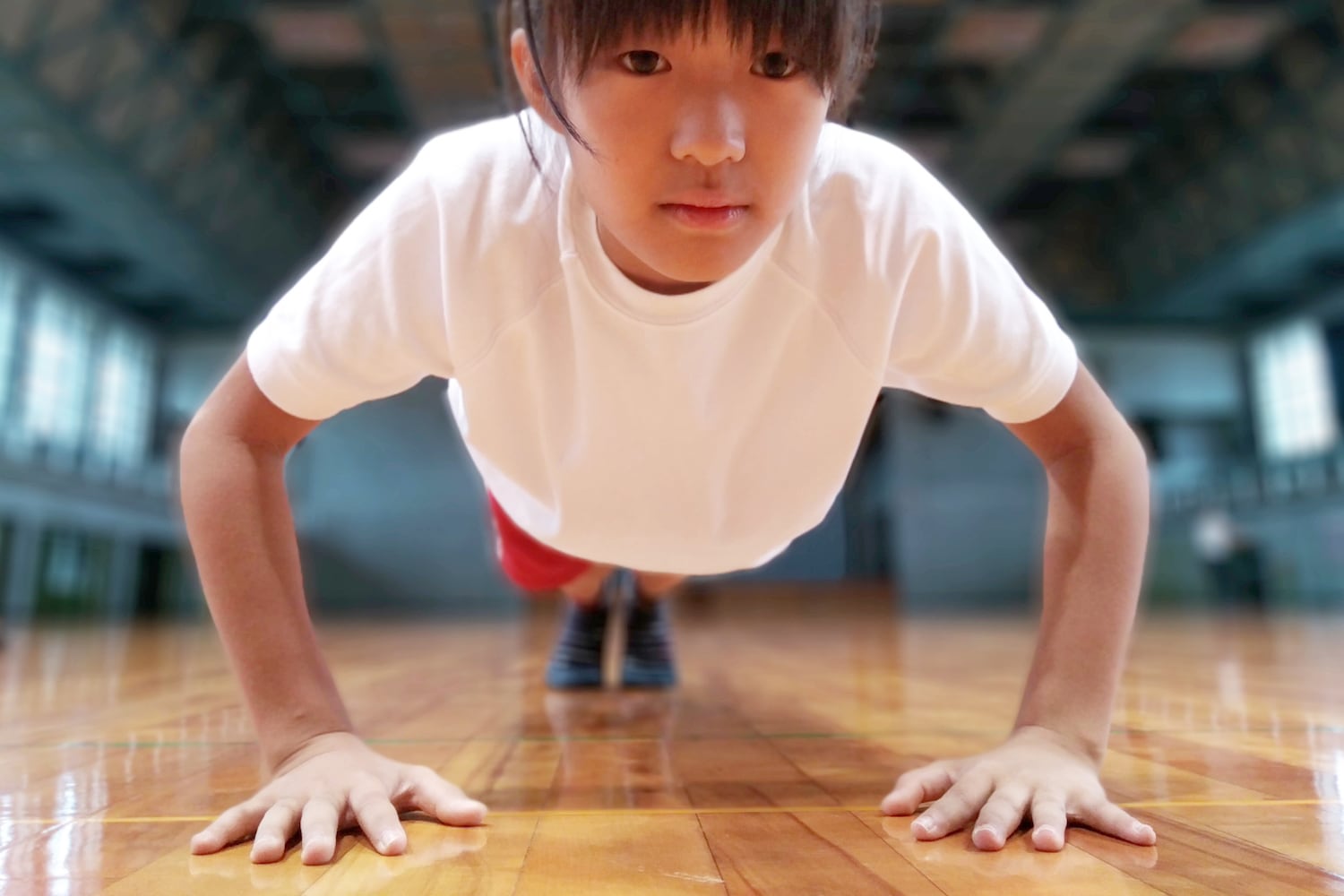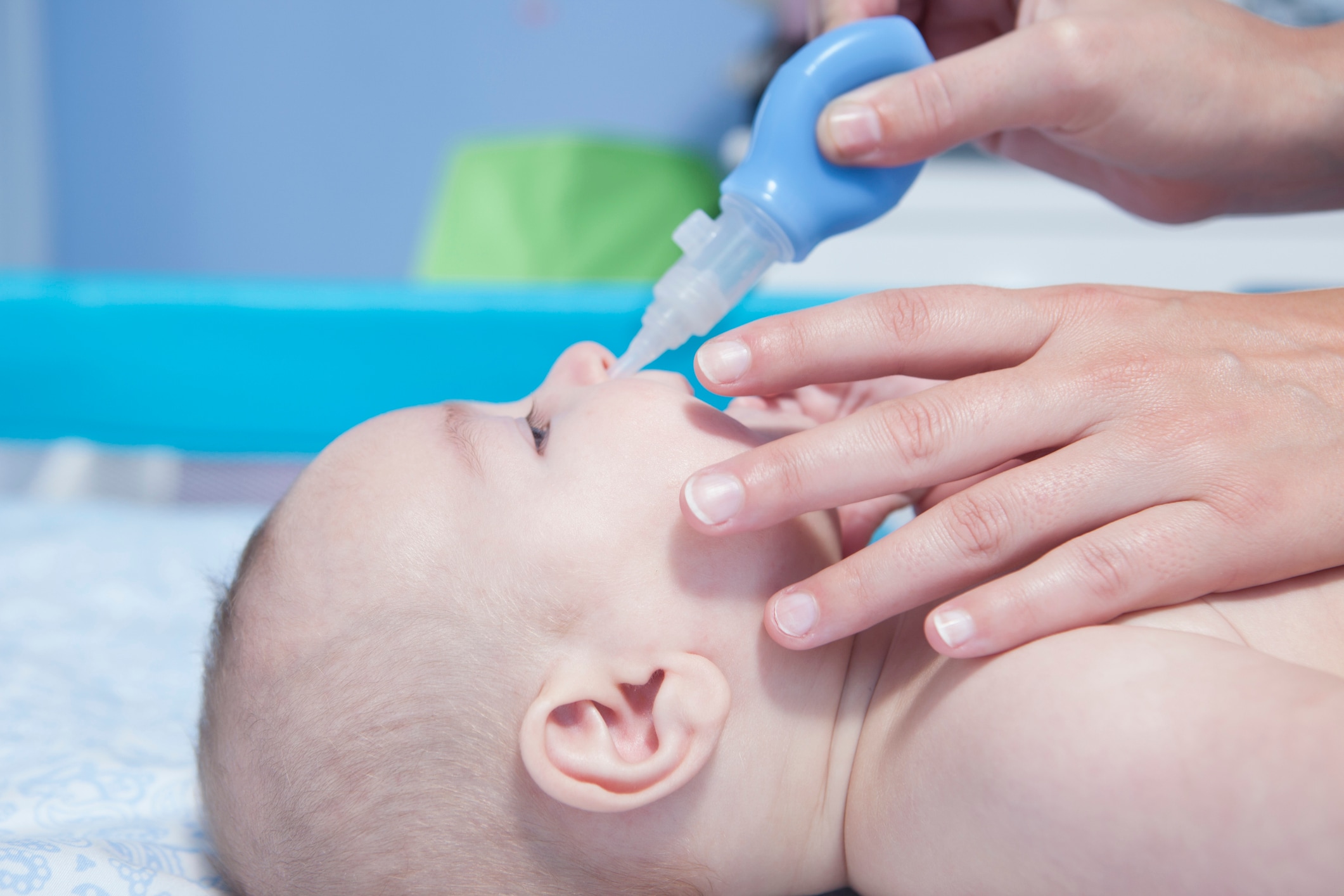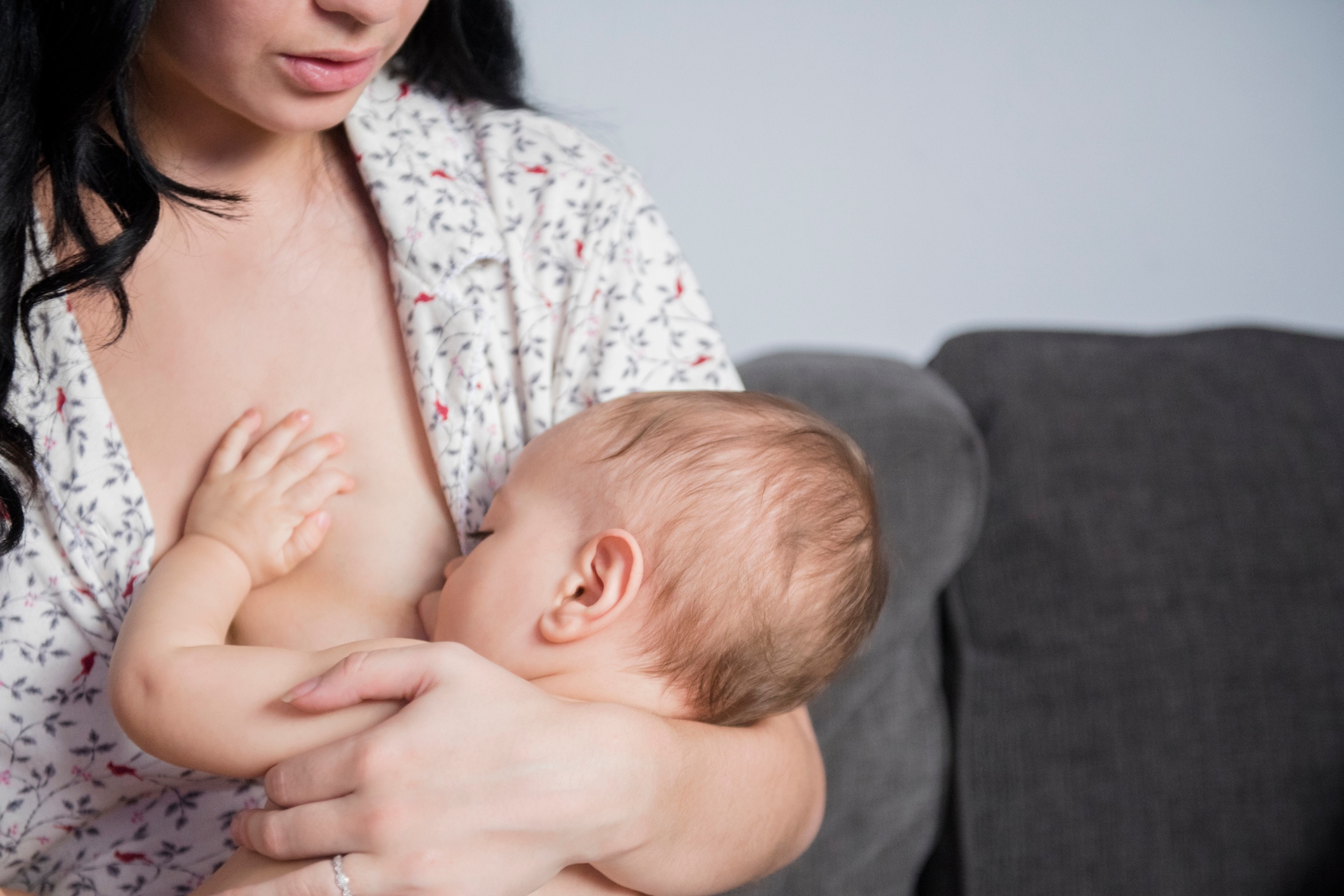A viral photo of a mom in Texas has ignited a conversation about discipline after being photographed forcing her son to do pushups in a Hobby Lobby bathroom as punishment for misbehaving. A stranger named Molly Wooden shared the image of the mom and her children on Facebook to praise her for “raising those boys right,” but the mom’s tough punishment has some parents asking where the line is between discipline and public humiliation.
“To the woman in the Hobby Lobby bathroom. If my hands weren’t full of children, I would have applauded you,” Wooden writes in the photo’s caption. “As your son gave you the back talk of the century, you stayed calm and collected while adding 10 more pushups to his already growing number. We need more parents like you, who aren’t afraid to parent their own children because of what someone else might think.”
In the photo, you can see a woman standing over a young boy in front of a row of bathroom stalls. Wooden adds that the boy told his mom the bathroom floor was gross, but the mom just told him to keep going, saying, “Maybe you shouldn’t have been acting obnoxious. They have soap for a reason. Ten more.”
The post has been shared over 43,000 times, and it has gotten over 14,000 comments from parents who are debating the mom’s punishment style. Some are in favor of her strict discipline tactics.
“I stand with this mom 100%,” one person writes. “This boy is being loved beyond measure, and he will understand that his mom raised him to know respect and manners. He will thank her for it when he matures.”
Others are disgusted that a child is doing pushups on a dirty bathroom floor and think the mom’s punishment is over the top.
“That is the filthiest thing I’ve ever seen,” one commenter writes. “What is wrong with her? What kind of mother has her child put his hands on a public bathroom floor? Not to mention how close his face was to the floor when he was doing the pushups! Horrible parenting!”
There are a lot of conflicting ideas about punishment and discipline in the parenting community. Many of today’s parents grew up during a time when spanking and other forms of physical punishment were acceptable. However, the American Academy of Pediatrics (AAP) came out against spanking and physical punishment in 2012, citing a growing number of studies that showed “physical punishment — including spanking, hitting and other means of causing pain — can lead to increased aggression, antisocial behavior, physical injury and mental health problems for children.”
In 2018, the AAP issued a recommendation that parents practice positive discipline, which includes reinforcing appropriate behaviors, setting limits, redirecting children and setting expectations.
“The AAP recommends that parents do not spank, hit, slap, threaten, insult, humiliate or shame to discipline their children,” the recommendation reads. “Research has shown that striking children, yelling at them or shaming can elevate stress hormones and lead to changes in the brain’s architecture.”
Mark Mayfield, LPC, a board-certified counselor and founder and CEO of Mayfield Counseling Centers, tells Care.com that shame and humiliation have the ability to cause real trauma in kids.
“There is a big difference in my mind between punishment and discipline,” he says. “I personally believe that punishment is meant to hurt or shame, whereas discipline is meant to teach, develop and mold. I personally do not believe in punishment, and I do not believe in public discipline. I know each family is culturally different. I base my opinion off of what public humiliation and shame does to the brain. It, effectually, is the same as trauma, which can lead to post-traumatic stress (PTS).”
Instead of looking for various ways to punish children for acting out in a public place, Mayfield advises parents to try connecting with their kids and figuring out the root of the problem.
“If possible, get down on their level, look them in the eyes, understand what is going on,” he says. “Every behavior is a need that is unmet.”
If a quick chat in the moment can’t solve the problem, Mayfield says to leave the store and talk about it together in the car or when you get home. It may not always be the most convenient option for parents, but it could be the most beneficial approach for the mental health of young kids.





